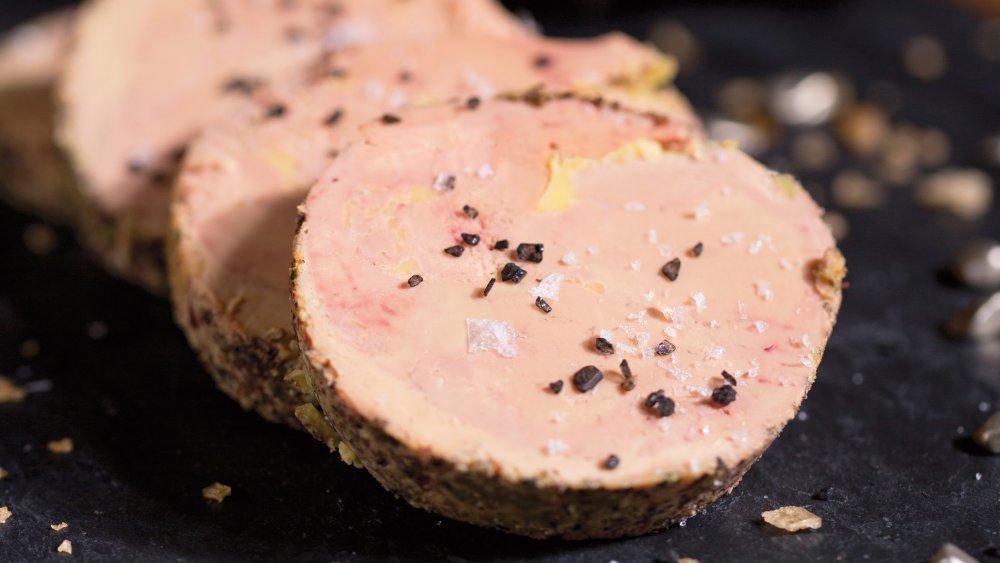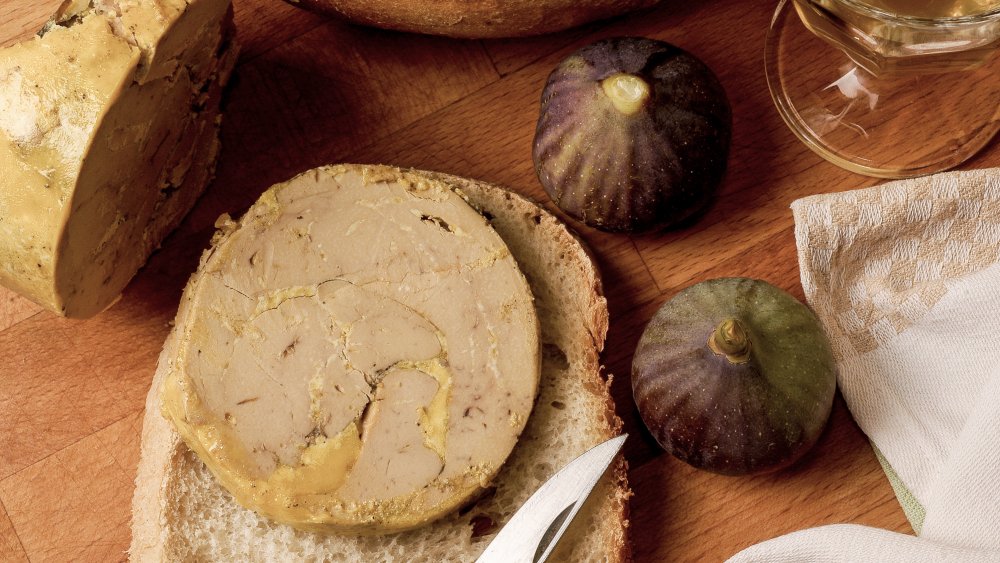The Disturbing Truth About Foie Gras
Known as a delicacy around the world, few people actually encounter foie gras in their everyday life, and therefore don't know the disturbing truth about its production. Made from the livers of overfed ducks and geese, it's easy to assume this offal meat would be lumped into the same category as pâté or sweetbreads. But there is a reason many animal rights activists have been calling for the ban of foie gras while allowing other cuts to go largely unprotested.
The French government defines foie gras as the liver of a duck or goose that has been specially fattened by "gavage." This feeding method is where the controversy comes in. Gavage is the practice of force-feeding a goose or duck by sticking a long tube down its throat directly into its stomach. According to The New York Times, these birds are fed up to three times each day, which causes their livers to grow up to 12 times its normal size. The process frequently happens in the last few weeks of the animals' lives, while they are kept in small cages so that they cannot move about freely. There have been countless protests and lawsuits from animal rights organizations, including high profile events organized by PETA, as reported by The Guardian, and voluntary bans on the production of foie gras in countries and cities around the world, with India being the only country to outright ban the product (via The Wall Street Journal).
Birds raised for foie gras don't live as long
Critics of foie gras say the abusive treatment of these birds goes far beyond commonly accepted measures used for other animals being raised for slaughter (via The Humane Society). The Canadian Veterinary Journal found the mortality rate for the birds to be 2 to 4 percent, compared to the 0.2 percent rate seen in birds the same age not being subjected to force-feedings. Animal rights activists and many scientists believe this is due to stress, liver failure, and injuries sustained during the feedings.
Proponents of foie gras point to the historical practice of its production, claiming the animals are happy to be fed and live comfortable lives until slaughter, provided farmers are adhering to ethical practices (via Star Chefs). Foie farmer Michael Ginor told Wine Spectator he and others believe the focus on foie gras takes away from larger health and welfare issues facing the farming community, such as the standardized practices taking place in industrial pig and cattle farming.

